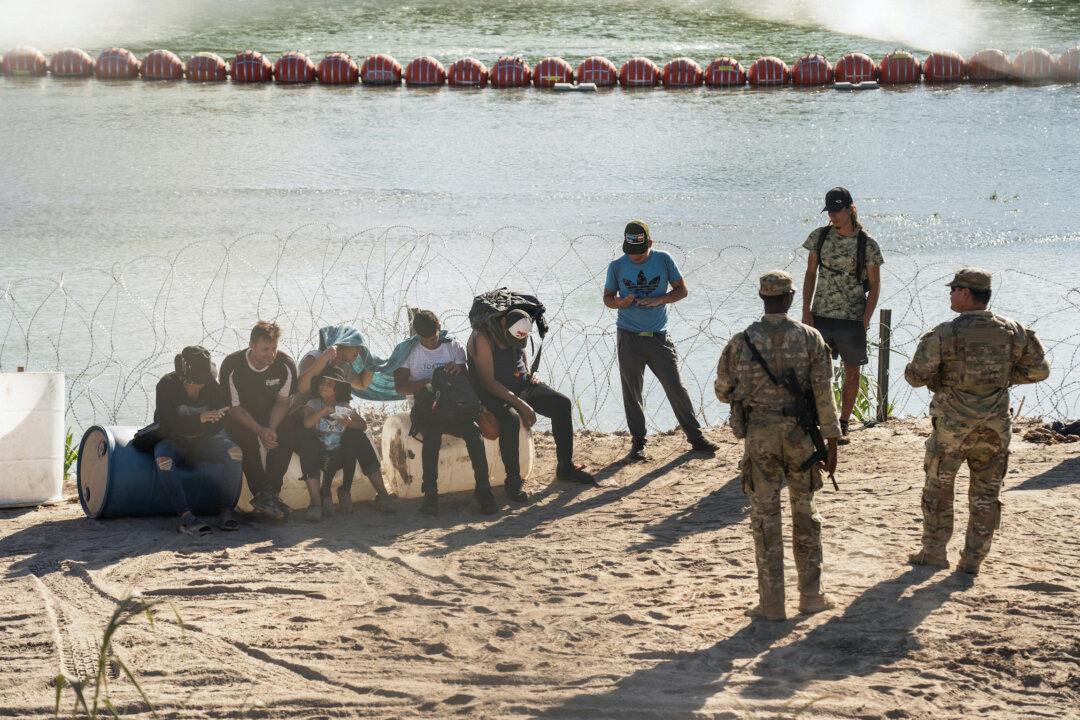Texas has been ordered by a federal judge to move a floating barrier of buoys deployed in the Rio Grande to deter illegal immigrants from crossing the U.S.-Mexico border.
U.S. District Court Judge David Ezra, a President Ronald Reagan appointee, issued a preliminary injunction on Wednesday requiring the Lone Star state to relocate the buoys to an embankment on the Texas side of the river.





